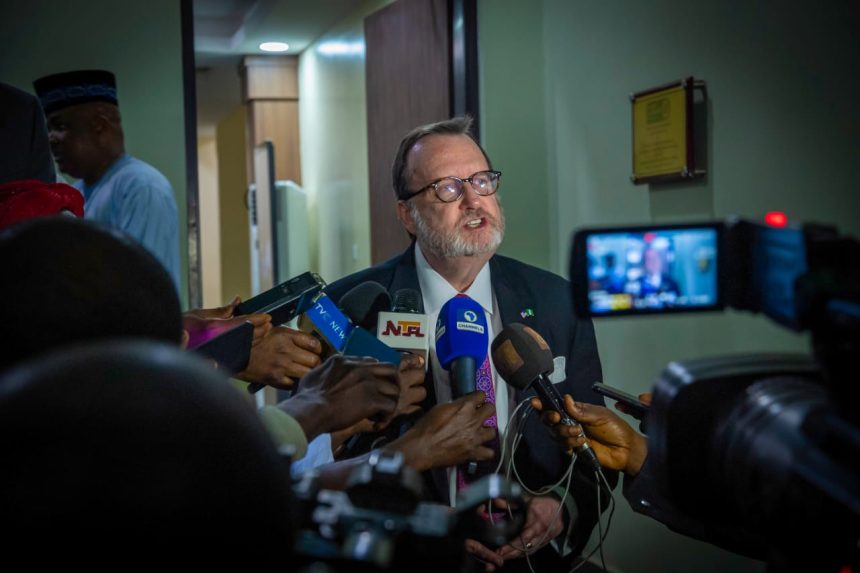The U.S. Ambassador to Nigeria, Richard Mills Jr., has firmly denied claims that USAID funded the Boko Haram group.
Speaking after his presentation at the Nigerian Governors’ Forum, Mills stated there is no evidence backing these allegations.
He explained that Boko Haram has been designated a Foreign Terrorist Organisation by the U.S. government since 2013.
This designation blocks Boko Haram from transferring assets to the U.S. and allows joint investigations with Nigerian authorities.
Mills emphasized that robust monitoring systems are in place to ensure U.S. assistance reaches only the intended recipients.
“If anyone possesses credible evidence of fund misappropriation, we urge them to present it for immediate investigation.”
Mills reaffirmed the U.S. commitment to Nigeria, emphasizing support in the fight against Boko Haram’s violent operations.
“No country has condemned Boko Haram’s violence and disregard for human life more strongly than the United States,” he said.

Strengthening U.S.-Nigeria Relations and Future Cooperation
The ambassador also clarified that U.S. financial assistance to Nigeria has not been cut but paused for ninety days.
“This temporary pause ensures foreign aid aligns with U.S. policies while life-saving assistance programs remain uninterrupted,” Mills added.
He stated that waivers had been granted for humanitarian programs, including HIV treatment and mother-child nutrition support.
Addressing U.S.-Nigeria relations, Mills outlined four key priorities for cooperation over the next four years.
These include boosting investment, combating corruption, promoting transparency, and empowering Nigeria’s local governing authorities.
He expressed a desire for deeper U.S. engagement at the state and local government levels across Nigeria.
Mills also discussed transitioning successful U.S.-supported healthcare programs, such as HIV and polio initiatives, to Nigeria.
“We aim to build state and local capacities, ensuring they manage these programs sustainably and effectively,” Mills noted.
He concluded by stressing that effective governance at local levels drives development, reflecting the U.S. federal system’s principles.



